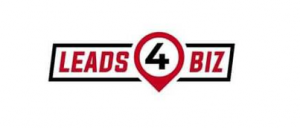
Hotels could be a breeding ground for nasty bacteria
How clean is your Hotel room?
Whether or not you have Obsessive Compulsive Disorder (OCD) regarding cleanliness there are times when we are just too accepting of standards when we stay in a hotel. Hotels have become a more affordable way of stopping over in cities and countries in the past thirty years.
With the fast turn-around of guests, just how clean are the rooms? Well they may look clean, then again so did my bedroom when I was a teenager, but everything was kicked under my bed for Mum’s room inspection.
The last thing you want to worry about when on business or pleasure; is whether or not your room is thoroughly clean. The peace of mind that comes with staying in a clean room is priceless, but let’s face it, whether or not your germaphobic, there will be that nagging question for when you’re staying at a hotel that is always in the back of your head:
Are hotel owners and managers really doing all they can to protect their facilities from the growth of bacteria?
A small independent study carried out in three hotel rooms in three different states in the U.S. revealed that light switches and TV remote controls in hotel rooms carry alarmingly high amounts of bacteria. The study was conducted with hopes to inspire the hotel industry to adopt better cleaning and sanitation guidelines, and all have a standard to which all accommodation away from home is adhered to.
Researchers collected samples from 19 surfaces in these hotel rooms and tested them for aerobic bacteria, including harmful microbes such as streptococcus and staphylococcus, as well as fecal bacteria coliform. The measurements were taken in colony-forming units of bacteria (CFU) per cubic centimeter squared.
The results are just too gruesome, and it’s hard for me to blog about; not surprisingly bathroom sinks and floors, main light switches and the TV remotes carry the most bacteria in hotel rooms.
TV remotes were a major petri dish of germs measuring an average of 67.6 CFU, but the study found that the main light switches had the highest average number of both bacteria tested – 122.7 CFU of aerobic bacteria and 111.1 CFU of fecal bacteria.
You could argue that if this will be the case, then most homes would be a walking cesspit with pets and infants adding to the mix , probably, but we don’t pay good money to stay at our homes, apart from paying mortgages which could be deemed as an investment anyway.
The other really scary and too often overlooked area of health is the Air Con. units in the hotels and the airborne germs.
Hot temperatures and rain are turning air conditioners into potential breeding grounds for bacteria. Taking care of your air conditioners is something everyone working in a hotel should do.
Now, they may have another incentive: Health officials are warning about dangerous bacteria that may be growing inside poorly maintained units.
By not checking and having regular AC Maintenance Bangkok, it could lead to Legionnaire’s disease, or Pontiac Fever. You can contract it by inhaling a water organism often found in air conditioners.
The US center for disease control says it impacts your respiratory system. Symptoms include muscle and head aches, fever, chills, and in some rare cases death which could lead to a hotel being shut down completely.
Here in South East Asia we are more dependent on Air Con. to bring an ambient temperature to our shopping malls, hotels, guest houses and even more important; office buildings where workers spend around 10-12 hours in the same environment each day.
One such company based in Bangkok Thailand is educating businesses that are using air conditioning to cool a number of workers or guests entering into their environments, to truly understand the notion of Indoor Air Quality, (IAQ) and to become more responsible for safeguarding the health of the people that enter and stay in the buildings.
The other massive benefit for building owners is; the cost savings of maintaining the air flow equipment in their buildings can be substantial.
AESS are saving thousands of dollars for companies each year and they even have examples of where they are saving millions of baht’s to their customers through energy savings from cleaning and keeping the HVAC coils clean for 12 months.
ASHREA report claims that a 10 to 15% improvement in energy savings can be achieve from keeping the HVAC system clean and serviced.
So even if they don’t care about you, at least they will care about the effects that badly maintained AC Units have on their pockets.
They also help businesses in the remediation of mold, Fungus and Biofilm. AerisGuard’s unique Enzyme cleaning process totally eliminates all know mold, Fungus and Biofilm, which prevents the HVAC coils from providing an efficient heat exchange.
So now you know it’s not just a case of cross your fingers, hope not to die, and take your chance in a hotel, ask the booking team are they a hotel that cares about air quality and cleanliness and with social media we can bring to the fore; the cleanest hotels with the cleanest air and tell everyone who to avoid.








